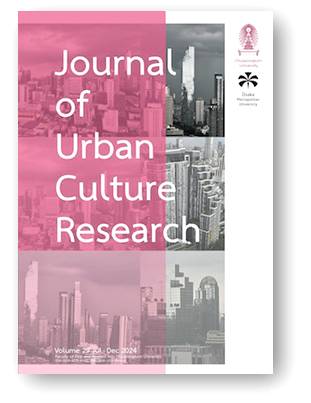Children’s Animation Films: The Cultural Advancement Perspective
DOI:
https://doi.org/10.14456/jucr.2024.18Keywords:
Children's Animated Films; Cultural Advancement; Local Animation Film Industry; Cultural Identity; Folklore IntegrationAbstract
The background of this research focuses on the phenomenon of the proliferation of foreign animated films that are easily accessible to children in the digital age, bringing opportunities and risks for children, the film industry, and local culture. It is important to understand how local animated films can adapt and compete with the dominance of foreign films, while supporting cultural promotion regulations. The purpose of this research is to examine the strategies of the local animation film industry in responding to these challenges and identify steps to improve the competitiveness of Indonesian animation films. The method used is descriptive qualitative with data collection through literature study, observation, and in-depth interviews. The analysis shows that the availability of competitive local animated films can encourage the development of children's films rooted in local culture, strengthening Indonesia's distinctive children's culture industry. The research concludes that integrating local cultural elements, such as folklore, into animated films is an effective strategy to enhance cultural identity and values in Indonesian films, and instill cultural values in children. The responsibility of Indonesian filmmakers in preserving culture through animated films is crucial for the promotion of culture.
Downloads
Published
How to Cite
Issue
Section
License

This work is licensed under a Creative Commons Attribution-NonCommercial-NoDerivatives 4.0 International License.
Authors authorize the JUCR to publish their materials both in print and online while retaining their full individual copyright. The copyright of JUCR volumes is retained by Chulalongkorn University.
The views and opinions expressed herein are those of the individual author(s) and do not necessarily reflect the policies or opinions of the Journal (JUCR), it editors and staff, Chulalongkorn University, or Osaka Metropolitan University.








